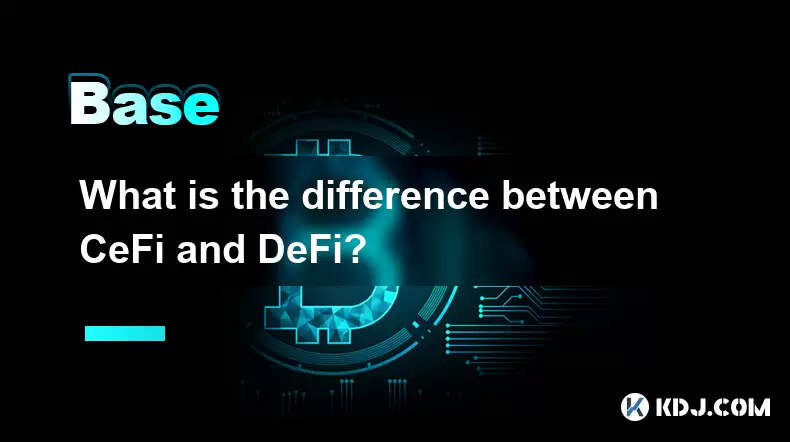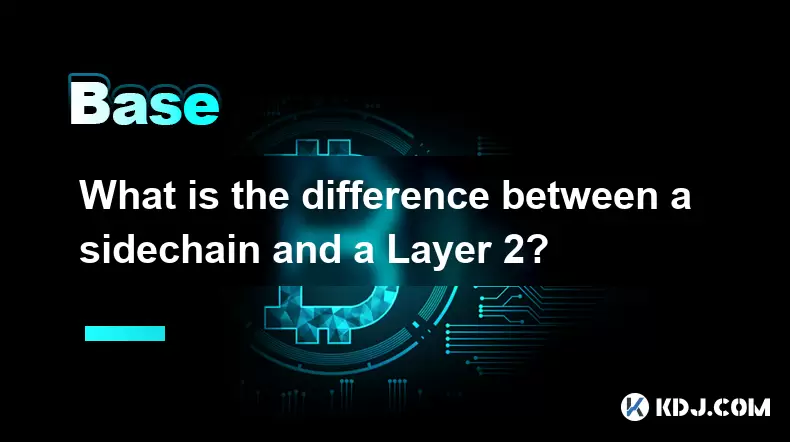-
 Bitcoin
Bitcoin $117500
2.15% -
 Ethereum
Ethereum $3911
6.19% -
 XRP
XRP $3.316
10.79% -
 Tether USDt
Tether USDt $1.000
0.01% -
 BNB
BNB $787.2
2.24% -
 Solana
Solana $175.2
4.15% -
 USDC
USDC $0.9999
0.00% -
 Dogecoin
Dogecoin $0.2225
8.40% -
 TRON
TRON $0.3383
0.28% -
 Cardano
Cardano $0.7868
6.02% -
 Stellar
Stellar $0.4382
9.34% -
 Hyperliquid
Hyperliquid $40.92
7.56% -
 Sui
Sui $3.764
7.63% -
 Chainlink
Chainlink $18.48
10.66% -
 Bitcoin Cash
Bitcoin Cash $582.1
1.88% -
 Hedera
Hedera $0.2601
6.30% -
 Avalanche
Avalanche $23.33
4.94% -
 Ethena USDe
Ethena USDe $1.001
0.02% -
 Litecoin
Litecoin $122.3
2.04% -
 UNUS SED LEO
UNUS SED LEO $8.969
-0.27% -
 Toncoin
Toncoin $3.339
0.86% -
 Shiba Inu
Shiba Inu $0.00001287
4.30% -
 Uniswap
Uniswap $10.43
7.38% -
 Polkadot
Polkadot $3.861
5.08% -
 Dai
Dai $1.000
0.02% -
 Bitget Token
Bitget Token $4.513
3.41% -
 Monero
Monero $267.7
-6.18% -
 Cronos
Cronos $0.1499
4.14% -
 Pepe
Pepe $0.00001110
5.15% -
 Aave
Aave $284.9
8.28%
What are the private and public keys of cryptocurrency?
Private keys are crucial for accessing cryptocurrency; losing them means losing your funds, so store them securely and never share them.
Mar 30, 2025 at 10:14 am

Understanding the Fundamentals of Cryptographic Keys
Cryptocurrencies rely heavily on cryptography to secure transactions and ownership. At the heart of this security lie two essential components: private keys and public keys. These keys are mathematically linked, forming the basis of digital signatures and ensuring the integrity and authenticity of cryptocurrency transactions. Think of them as a digital lock and key, where the public key is the lock and the private key is the key that unlocks it. Losing your private key is akin to losing the ability to access your funds.
The Public Key: Your Cryptocurrency Address
Your public key is essentially your cryptocurrency address. It's a long string of alphanumeric characters that you share publicly. This is the address you provide to others when receiving cryptocurrency payments. Anyone can send you cryptocurrency to this address, but they cannot access your funds without your private key. Think of it as your bank account number – you share it freely, but only you have access to the funds. The public key is not secret and its exposure poses no direct risk to your funds.
The Private Key: The Gatekeeper to Your Funds
Unlike the public key, your private key must be kept absolutely secret. This is the cryptographic key that proves your ownership of the cryptocurrency associated with your public key. It's used to sign transactions, authorizing the transfer of funds from your wallet. Anyone who possesses your private key gains complete control over your cryptocurrency. Never share your private key with anyone, and always store it securely. Compromising your private key results in the irreversible loss of your cryptocurrency.
How Private and Public Keys Work Together
The relationship between private and public keys is based on sophisticated asymmetric cryptography. This means that while it's easy to generate a public key from a private key, it's computationally infeasible to derive the private key from the public key. This one-way function is crucial for the security of cryptocurrency transactions.
When you send cryptocurrency, your wallet uses your private key to digitally sign the transaction. This signature proves that you authorize the transfer of funds. The network then verifies this signature using your public key, ensuring that only the rightful owner can spend the cryptocurrency.
Key Generation and Storage
- Software Wallets: These wallets generate key pairs (public and private keys) and manage their storage. They offer varying levels of security.
- Hardware Wallets: These are considered the most secure option, storing your private keys offline on a dedicated device.
- Paper Wallets: These involve printing your public and private keys on paper for offline storage. This method requires extreme caution to prevent loss or damage.
It's crucial to understand the security implications of each storage method. The best method depends on your technical skills, risk tolerance, and the amount of cryptocurrency you hold.
Understanding Different Key Types
While the core concept remains the same, various cryptographic algorithms generate different types of keys. Bitcoin, for instance, uses elliptic curve cryptography (ECC), resulting in keys significantly different from those used by other cryptocurrencies employing different algorithms. The underlying mathematical principles, however, remain consistent in their function of securing transactions. Always ensure you understand the specific key type used by your chosen cryptocurrency.
Key Management Best Practices
- Choose a reputable wallet: Research and select a wallet with a strong security track record and positive user reviews.
- Enable two-factor authentication (2FA): This adds an extra layer of security to your wallet access.
- Regularly back up your keys: Store backups securely in multiple locations.
- Never share your private key: Treat your private key like a highly sensitive password.
- Be wary of phishing scams: Don't click on suspicious links or provide your private key to anyone.
Implementing these best practices significantly reduces the risk of losing access to your cryptocurrency. Remember, your private key is the sole access point to your funds. Its security is paramount.
Frequently Asked Questions
Q: What happens if I lose my private key?
A: If you lose your private key, you lose access to your cryptocurrency. There is no way to recover it, making it crucial to store your private key securely.
Q: Can I recover my private key if I forget it?
A: No, private keys are not recoverable. They are generated using cryptographic algorithms that make retrieval impossible. Proper backup and storage are essential.
Q: Are public keys vulnerable to hacking?
A: While public keys are publicly available, they do not provide access to your funds. Hacking a public key is not a security risk.
Q: What are the differences between different types of cryptocurrency keys?
A: Different cryptocurrencies employ different cryptographic algorithms, leading to variations in key formats and sizes. However, the fundamental principles of public and private key cryptography remain the same.
Q: How do I choose the right wallet for my keys?
A: Consider factors like security features, ease of use, and support for your chosen cryptocurrency when selecting a wallet. Hardware wallets are generally considered the most secure.
Q: What is the best way to store my private keys?
A: There's no single "best" method, but hardware wallets provide the highest level of security. Other options include paper wallets and software wallets, each with its own security trade-offs. Always prioritize security and consider your risk tolerance.
Q: Is it safe to store my private keys on my computer?
A: Storing private keys on a computer is generally considered less secure than using a hardware wallet or a well-secured paper wallet, due to the risk of malware or computer compromise.
Q: Can I use the same private key for multiple cryptocurrency wallets?
A: No. Each cryptocurrency wallet requires its own unique private key pair. Using the same key across multiple wallets compromises security.
Q: What should I do if I suspect my private key has been compromised?
A: Immediately secure your funds by transferring them to a new, secure wallet. Change all related passwords and report any suspicious activity.
Disclaimer:info@kdj.com
The information provided is not trading advice. kdj.com does not assume any responsibility for any investments made based on the information provided in this article. Cryptocurrencies are highly volatile and it is highly recommended that you invest with caution after thorough research!
If you believe that the content used on this website infringes your copyright, please contact us immediately (info@kdj.com) and we will delete it promptly.
- Tron's Sell-Off Spurs Altcoin Shift: What's Next for TRX?
- 2025-08-08 08:30:12
- RUVI Presale: Is the Growth Potential Real?
- 2025-08-08 09:10:12
- Sleep Token's US Takeover: Thornhill Rides the 'Even In Arcadia' Wave
- 2025-08-08 08:30:12
- FTT Token's Wild Ride: Creditor Repayments vs. Market Drop - A New Yorker's Take
- 2025-08-08 07:10:12
- Floki Crypto Price Prediction: Riding the Robinhood Rocket or Just a Meme?
- 2025-08-08 07:15:12
- EigenLayer, Restaking, and Ethereum: Navigating the Hype and the Hazards
- 2025-08-08 06:30:12
Related knowledge

How to read a crypto chart?
Aug 08,2025 at 10:35am
Understanding the Basics of a Crypto ChartA crypto chart is a visual representation of the price movements of a cryptocurrency over time. These charts...

What is the difference between CeFi and DeFi?
Jul 22,2025 at 12:28am
Understanding CeFi and DeFiIn the world of cryptocurrency, CeFi (Centralized Finance) and DeFi (Decentralized Finance) represent two distinct financia...

How to qualify for potential crypto airdrops?
Jul 23,2025 at 06:49am
Understanding What Crypto Airdrops AreCrypto airdrops refer to the distribution of free tokens or coins to a large number of wallet addresses, often u...

What is a crypto "airdrop farmer"?
Jul 24,2025 at 10:22pm
Understanding the Role of a Crypto 'Airdrop Farmer'A crypto 'airdrop farmer' refers to an individual who actively participates in cryptocurrency airdr...

What is the difference between a sidechain and a Layer 2?
Jul 20,2025 at 11:35pm
Understanding the Concept of SidechainsA sidechain is a separate blockchain that runs parallel to the main blockchain, typically the mainnet of a cryp...

What is the Inter-Blockchain Communication Protocol (IBC)?
Jul 19,2025 at 10:43am
Understanding the Inter-Blockchain Communication Protocol (IBC)The Inter-Blockchain Communication Protocol (IBC) is a cross-chain communication protoc...

How to read a crypto chart?
Aug 08,2025 at 10:35am
Understanding the Basics of a Crypto ChartA crypto chart is a visual representation of the price movements of a cryptocurrency over time. These charts...

What is the difference between CeFi and DeFi?
Jul 22,2025 at 12:28am
Understanding CeFi and DeFiIn the world of cryptocurrency, CeFi (Centralized Finance) and DeFi (Decentralized Finance) represent two distinct financia...

How to qualify for potential crypto airdrops?
Jul 23,2025 at 06:49am
Understanding What Crypto Airdrops AreCrypto airdrops refer to the distribution of free tokens or coins to a large number of wallet addresses, often u...

What is a crypto "airdrop farmer"?
Jul 24,2025 at 10:22pm
Understanding the Role of a Crypto 'Airdrop Farmer'A crypto 'airdrop farmer' refers to an individual who actively participates in cryptocurrency airdr...

What is the difference between a sidechain and a Layer 2?
Jul 20,2025 at 11:35pm
Understanding the Concept of SidechainsA sidechain is a separate blockchain that runs parallel to the main blockchain, typically the mainnet of a cryp...

What is the Inter-Blockchain Communication Protocol (IBC)?
Jul 19,2025 at 10:43am
Understanding the Inter-Blockchain Communication Protocol (IBC)The Inter-Blockchain Communication Protocol (IBC) is a cross-chain communication protoc...
See all articles

























































































